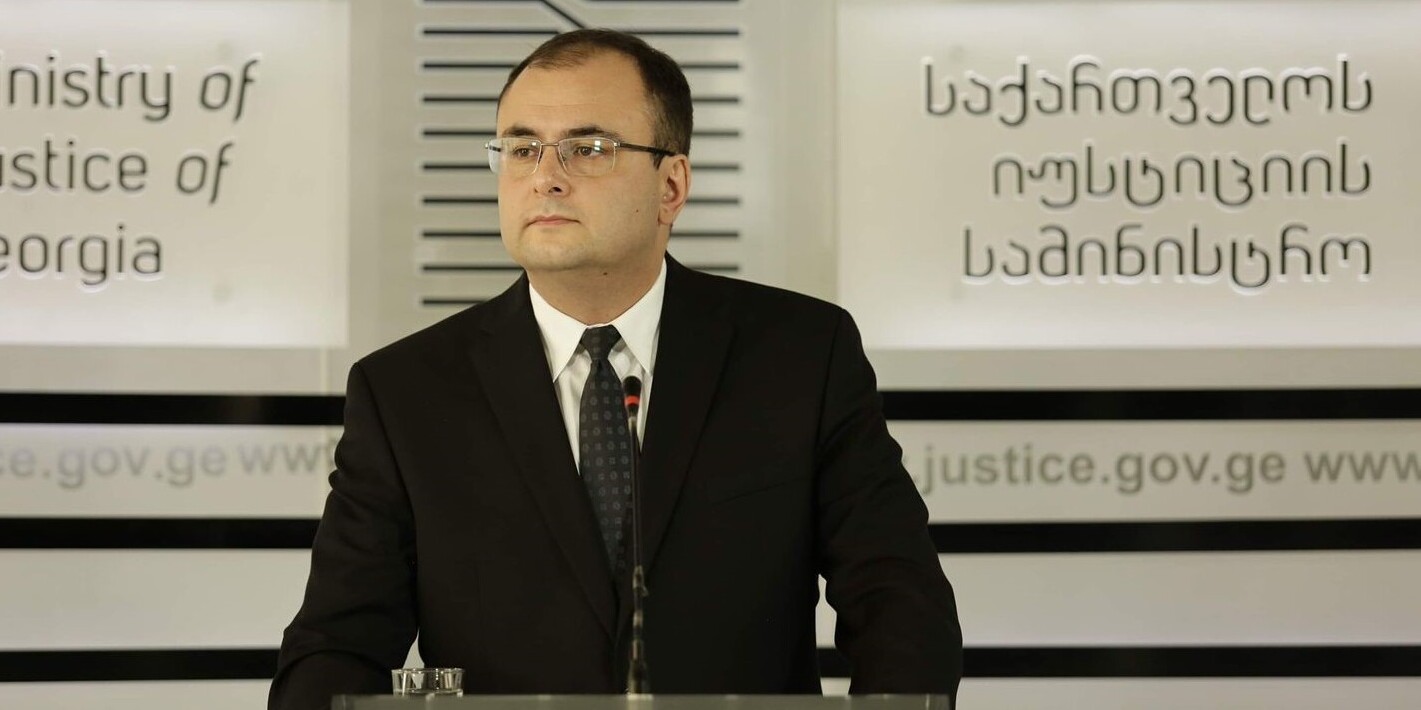News

Statement of the Minister of Justice
"We will make a statement regarding the campaign to transfer Mikheil Saakashvili to an intensive care unit and will give an outline of the injury acts prisoner Mikheil Saakashvili has caused to himself.
The destructive behaviour the radical opposition engages in to maintain its political vitality is no novelty to our society. Hence, it should not come as a surprise that they are trying to politicize the human health to achieve their political goals, and even make it an object of manipulation.
An active campaign, which has been underway for the past two days to have prisoner Mikheil Saakashvili transferred to an intensive care unit, is aimed to create an erroneous impression of his real health condition, artificially build emotional tension and intentionally portray as unfair the government’s actions. It was part of this campaign that Saakashvili’s lawyer and members of his political team spread the fake news the prisoner had allegedly been moved to intensive care."
When it comes to medical treatment, we rely on the opinion of healthcare professionals, rather than on the misleading and groundless allegations of some politically motivated persons. According to yesterday's statement by the Vivamed Clinic director, the patient has no swallowing problems or any other disorder that would prevent food intake. The defendant was offered a parenteral nutrition, which he categorically rejected claiming that he would only agree to it if he were placed in intensive care. Physiological parameters of the patient remain within the norm and his body mass index does not qualify him for ICU admission. This means that there is no objective reason for referring the patient to an intensive care unit. Hence, it is necessary for our society to know that the parenteral nutrition that can be freely administered in the hospital ward where defendant Saakashvili is currently placed, is made impossible by the defendant himself who refuses to be administered intravenous nutrition and prevents the medical staff from carrying out their duties. As for ultimatums and threats of self-harm, they are categorically unacceptable to us and to our society.
This refusal by the defendant is but an act of self-injury for which the responsibility rests with the defendant himself and those persons who are actively engaged in various forms of encouraging and promoting self-harm. We would like to remind our society that when the defendant went on hunger strike, the penitentiary authorities called on him to end the hunger strike, while the politically motivated persons continued to encourage him to deteriorate his health-condition by refusing food intake.
In response to his lawyers’ allegations that he might be poisoned, we offered the defendant toxicological examination which he rejected. He refuses to provide samples for forensic examination, which indicated that he is not interested in ascertaining the truth.
In line with our duty to take care of his health, we suggested to defendant Saakashvili and his lawyers to invite medical professionals from any foreign clinic,whom we would assist to engage in his treatment. However, they did not respond to this offer either.. Hunger, insufficient caloric intake, failure to submit samples required for forensic examination, selective administration of medications, constant threats and insults to medical staff and direct or indirect encouragement of such actions are far from being the behaviour of the person who is interested in the defendant’s health. Quite the contrary, this whole chain of activities is aimed at worsening the state of his health and thereby making it possible to avoid the sentence.
Undoubtedly, our duty is to take care of the health of the prisoner, which we always perform for any prisoner. The convict Saakashvili received timely medical assistance at all stages of detention, and he is still in the clinic.
Since 2012, the shameful period of torture and inhuman treatment of prisoners in penitentiaries has gone down in history in Georgia. Today’s Georgian state operates in accordance with the highest standards of human rights in relation to prisoners.
The Ministry of Justice, the Special Penitentiary Service, a medical institution and individual doctors cannot be held liable for self-mutilation of a prisoner, including failure to comply with medical prescriptions.
Considering the 500-day political campaign, the behaviour of the prisoner towards the medical staff and his regular self-harm, the employees of the Special Penitentiary Service and medical personnel have to perform their duties in difficult conditions, and it is unacceptable that these people become objects of insults and threats.
In addition, any attempt to shift responsibility for self-mutilation of a prisoner to those persons through political campaigns is categorically unacceptable. I would like to take this opportunity to thank these people for their decent service.
We are witnessing a political campaign aimed at harming the image of the state, and a completely unacceptable attempt by a particular prisoner to secure an escape from prison through self-harm. Based on the interests of the state, it is natural that the Minister of Justice cannot be loyal to this fact. Since this is a dangerous precedent that could have an encouraging effect on the behaviour of other prisoners, it may become a serious challenge to national security.
I’ll repeat again that we can only be held responsible for the proper performance of our duty, but in no way for the self-harm of a prisoner, manifested in his selective intake of non-caloric food and regular non-compliance with medical prescriptions.
Based on the best interests of the prisoner’s health, we call on everyone to immediately stop supporting the self-mutilation of prisoner Mikheil Saakashvili, call on him to follow medical recommendations that are beneficial for his health and stop politicizing the issue of the execution of the sentence.
Georgia is a state of law, which, on the one hand, protects the rights of the prisoner, and at the same time ensures the enforcement of the law, which in this case is expressed by the execution of the sentence.”
 Geo
Geo Eng
Eng